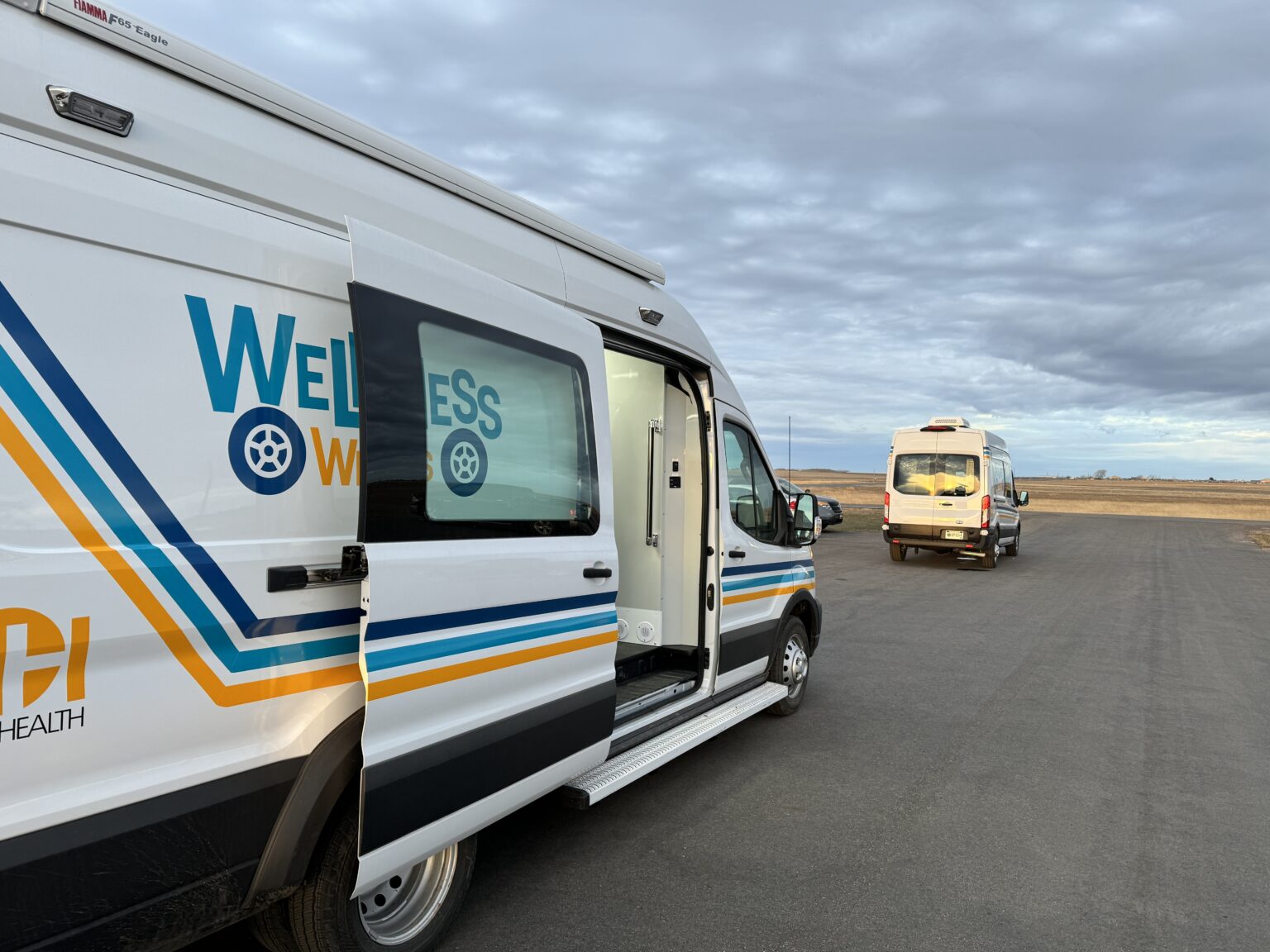
Makenzie Huber/South Dakota Searchlight
The South Dakota Department of Health plans to send its fledgling mobile clinics to underserved and undervaccinated areas of the state in response to the nationwide measles outbreak making its way to the state.
Last year, South Dakota reported its first measles case in nine years.
The state Department of Health recently reported the state’s first case this year in Meade County in western South Dakota. Last week, on Friday, a second case was reported in Rapid City. People who visited Sam’s Club in that city on June 1, or Dakota Premier Medical Center the following day were urged by the department to monitor themselves for symptoms for 21 days.
Measles is a highly contagious viral disease that spreads through the air. Those who lack immunity from vaccination or past infection are highly likely to catch it from an infected person.
As surrounding states report more cases, Health Department Secretary Melissa Magstadt said the state’s “Wellness on Wheels” clinics can help encourage vaccinations.
The fleet boasts five vehicles equipped to provide immunizations, test for sexually transmitted diseases such as syphilis, as well as provide screenings, prenatal care and other support. The effort fills in gaps to public health care access across the state, especially in rural and tribal communities, Magstadt said.
“It’s about how we can actively use these tools to reach underserved populations,” Magstadt said. “It’s not something I would have thought about looking to leverage for something like measles vaccinations before.”
The department hasn’t decided where to send their fleet. Counties with the fewest kindergarteners vaccinated per capita for measles, mumps and rubella include Faulk, Jones and Hutchinson, state data shows.
South Dakota counties that share tribal land and rural counties in south-central areas of the state rank the worst for clinical care use and access in the state, according to the University of Wisconsin Population Health Institute’s 2023 report.
Federal COVID relief funds paid for Wellness on Wheels.
“Because of the pandemic, public health infrastructure was found to be wanting,” Magstadt said. That infrastructure missed “critical pieces” that hadn’t been invested in, she said, such as health care access in rural areas. More than a hundred rural hospitals in the U.S. have closed in the last decade.

The program, launched in April of last year, cost about $800,000 in federal funding. The state’s public health COVID funding was also used to support a community health worker program, update emergency medical service equipment and telemedicine access, analyze the state of emergency medical services in South Dakota, and build a Public Health Lab and department training center.
Magstadt said staff working with the Women, Infants and Children (WIC) program requested the mobile units. WIC is a federal-state program that provides healthy food, nutrition education and health care referrals to low-income women and their young children.
So far, Wellness on Wheels staff have mainly driven to events. Magstadt said the department has focused on increasing awareness of the program and building trust in communities and among tribal leaders. She plans to have staff drive the buses to rural communities more regularly to increase exposure and encourage use.
“Being consistently at a facility or place every other week will help people find it,” Magstadt said. “We talk about the importance of STI testing, for example, but if you don’t know where to get tested then that’s another barrier.”
Magstadt plans to have the department park one of the vehicles at a homeless shelter in Rapid City this summer as well to encourage underserved urban communities to seek services.
“We like people to be connected to primary care services, but there are unique situations where it’s harder to get to health care facilities,” Magstadt said.
She compared the mobile clinics as a return to home visits by doctors. That practice largely ceased in the 1960s due to cost efficiencies.
“It’s a part of this menu of health care access and options no longer requiring people to come to a clinic or health care system,” Magstadt said, “but health care being taken to patients and families who need it.”
Mobile clinics grow in SD
Mobile health care clinics are available in every state. They range from public entities like South Dakota’s Wellness on Wheels, to specialized, private care. Other mobile clinics operating in South Dakota, according to Mobile Health Map, include:
